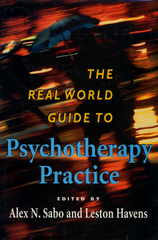

To penetrate the opaque, to lift the weight and let the self escape its frozen image—this is the essence of psychotherapy, a process described with extraordinary grace and warmth in this book. In remarkably candid portraits of patients at odds with themselves, Leston Havens takes us through the wonders and rigors of psychological healing and shows us what it really means, in immediate, human terms, to come to life.
We are all captives of the images we carry with us—and those we inspire—and therapy seeks to expose the relation of these images to a deeper psychological life, to free the captive from labels and crippling assumptions. Havens views this process through the multiple lenses of literature, art, and psychiatry. In rich clinical portraits, short on jargon and rigid techniques and long on empathy and wisdom, we encounter ordinary people struggling with the trials of their own existence: marriage and divorce, sexual identity and fulfillment, illness and death. We meet a woman imprisoned by eager responses to her beauty and helpfulness, a proud lawyer in thrall to conventional expectations, a dying man becoming more and more alive as he approaches death.
Through these very personal stories, Havens explores the meaning of psychological health—how it can be recognized through the filter of images and ideas, protected from their distorting power, and encouraged to flourish. The result is a revealing and deeply moving explication of the process of self-discovery as it emerges from the life story that therapy can tell.

Since 1955, moving from early work in psychopharmacology to studies of clinical method and the psychiatric schools, Leston Havens has been working toward a general theory of therapy. It often seems that twentieth-century psychiatry, sect-ridden, is a Tower of Babel, as Havens once characterized it. This book is the distillation of long years of thought and practice, a bold yet modest attempt to delineate an “integrated psychotherapy.”
The boldness of this effort lies in its author’s willingness to recognize the best that each school has to offer, to describe it cogently, and to integrate it into a full response to today’s new kind of patient. Descriptive or medical psychiatry, psychoanalysis, interpersonal or behavioristic psychiatry, empathic or existential therapy-viewed in metaphors, respectively, of perceiving, thinking, managing, feeling-all have useful contributions to make to contemporary methods of treatment. But how? Havens’s modest answer is through appropriate language, and he demonstrates exactly what he means: when to ask questions, when to direct or draw back, when to sympathize.
Practitioners now must deal with less dramatic, but more stubborn, problems of character and situation; lack of purpose, isolation, submissiveness, invasiveness, deep yet vague dissatisfaction. Some kind of human presence must be discovered in the patient, and Havens gives concrete, absorbing examples of ways of “speaking to absence,” of making contact. The emphasis is on verbal technique, but the underlying broad, humane intent is everywhere evident. It is no less than to transform passivity, by means of disciplined therapeutic concern, into a state of being Human.


READERS
Browse our collection.
PUBLISHERS
See BiblioVault's publisher services.
STUDENT SERVICES
Files for college accessibility offices.
UChicago Accessibility Resources
home | accessibility | search | about | contact us
BiblioVault ® 2001 - 2024
The University of Chicago Press









